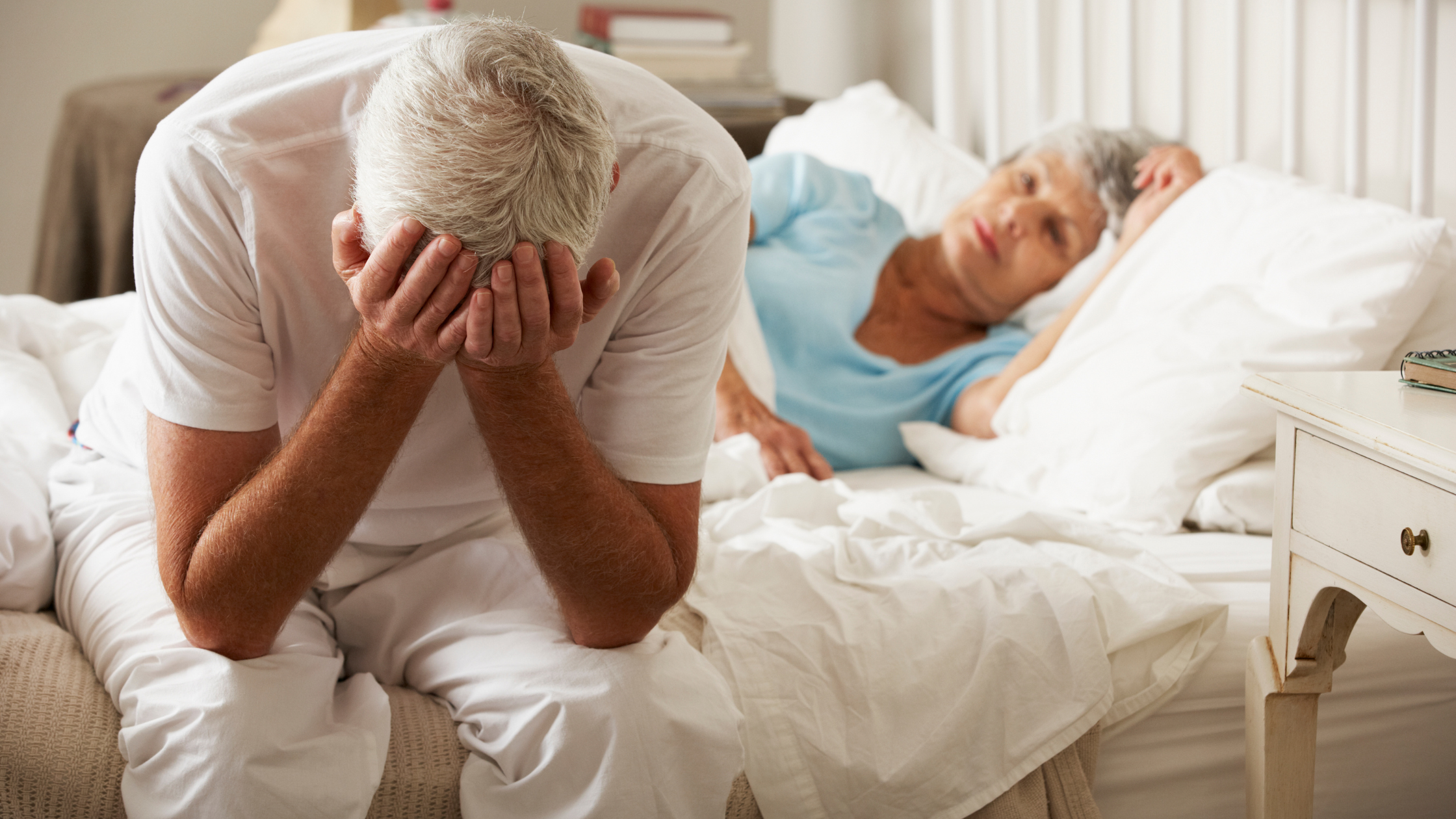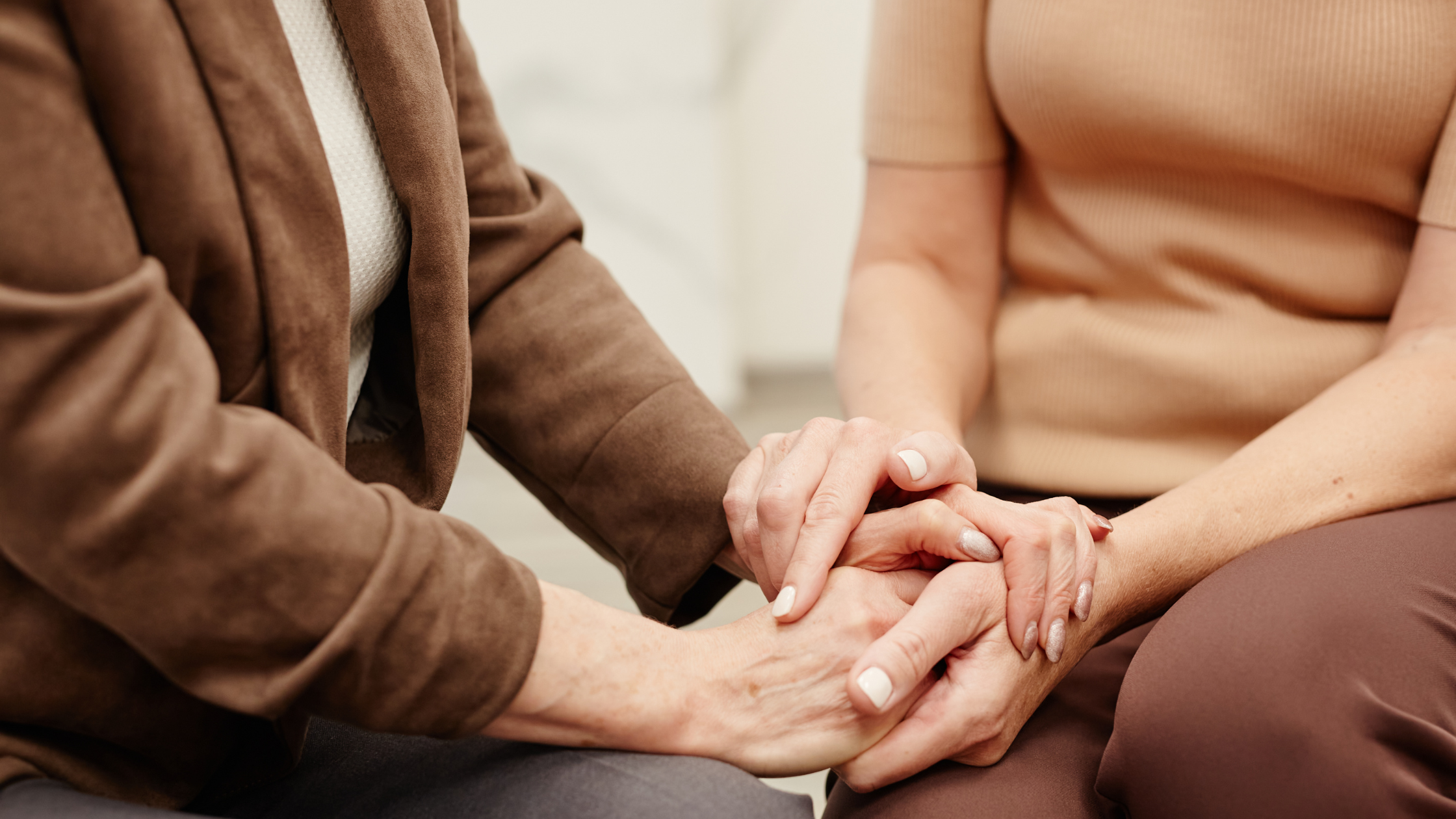Are Grief and Depression Natural After Losing a Pet?
Tye Medical Incontinence Products
For more information about the author, click to view their website: TYE Medical
Aug 22, 2024
Florida - Sarasota, Bradenton & Charlotte Counties
Email US
Click to Email UsIt’s common to feel depressed and grieve after the loss of a pet, and many people experience this time of mourning. But it should be temporary, and the time frame varies among individuals. Ongoing, long-term depression often has other causes even if it coincides with losing a fur baby. Just like with any loss, it helps to have support from people who love you and allow yourself to grieve as you learn to cope.
Many cultures worldwide value animals as pets, welcoming the companionship they offer. In the United States, nearly half of all households have at least one dog and over a quarter have at least one cat. It’s not uncommon to love your pet like a family member, which means losing one can be almost as devastating as losing a human member of your family.
This is why it’s natural to feel intense emotions like sadness, anger, or even shock when your pet dies. But when negative emotions and thoughts continue daily and even hourly, your grief may be transitioning to depression, but when should you be worried and how can you cope after the loss of a pet?
Is Depression Normal After Losing a Pet?

It’s normal to have depressed feelings after you lose your pet. But clinical depression, also known as major depressive disorder (MDD) isn’t part of a natural grieving process. While your grief can be intense and even disrupt your daily life for a while, it usually doesn’t cause major depression (MDD). However, you’re still experiencing depressive symptoms, and those feelings are real and deep. It’s just not usually long-lasting enough to be considered “clinical” or a “disorder”.
But for some people, the loss of a pet triggers depression symptoms that progress into clinical or major depression. When this happens, it usually means you are predisposed to depressive disorders. The loss of your pet is the trigger.
Regardless, it’s always best to take your feelings seriously and consider talking with a counselor or a therapist as you grieve. This can help alleviate some of the emotional strain and even benefit those who are prone to more severe depression.
What Is the Difference Between Grief and Depression?

Grief isn't a constant state. It tends to ebb and flow in intensity and moments of happiness are usually possible as you remember joyful moments with your pet. As the shock wears off, you’re able to function within your daily life despite moments of overwhelming sadness. Your grief usually improves with time.
On the other hand, major depressive disorder is a mental health disorder. Hallmark symptoms include persistent low mood throughout each day, unnecessary feelings of guilt, lack of motivation for daily activity, feelings of worthlessness, disturbed sleep, and low energy.
While time and therapy can alleviate grief symptoms, major depressive disorders often require more intervention. If you suspect MDD, talk to your doctor about options that may benefit you.
Depression or Prolonged Grief Disorder?

Prolonged grief disorder (PGD), also known as complicated grief, is similar to major depression in that it is long-lasting, persistent throughout the day, and interferes with daily life. But the difference is that these symptoms are directly related to your recent loss.
More specific symptoms for prolonged grief disorder include:
- Feeling a loss of your identity since the death
- Persistent, unimproving grief
- Disbelief about the loss
- Feeling emotionally numb
- Avoiding reminders of the one you lost
- Intense emotional pain
- Social withdrawal and isolation
- No purpose in life without the one you lost
- Feeling intense loneliness without your pet or person you lost
- Daily function significantly impaired
You can experience PGD after the loss of a pet. It’s not limited to losing a human loved one.
Is Losing a Pet a Type of Trauma?

Yes! It can be traumatic to lose a pet especially if you’re someone who feels like they lost a member of the family. It can feel identical to losing a human loved one.
Despite this strong attachment that has its downside when loss strikes, overall, the human-animal bond has a positive impact on mental well-being. Pets provide unconditional companionship, affection, and support. They offer comfort without judgment, and for many people, it’s a close bond.
And since your pet was a daily part of your life, routines develop around your animal from the time you get out of bed. Along with pet loss is a loss of routine that affects your life in both practical and emotional ways.
It can be traumatic to lose a pet, making grief feelings very natural.
How Can You Cope with the Grief Over Losing a Pet?

It’s important to let yourself grieve and not scold yourself for doing so. It’s not silly to feel deep sadness after pet loss. Allow your grief to run its natural course without trying to avoid or deny it. Allowing yourself a natural period of bereavement often shortens the grieving time. In contrast, bottling up your emotions and pushing them away usually elongates the process.
After you accept the death and your grief feelings, you can try some methods to help you manage the grief over losing your pet.
Get Support from Loved Ones
You may find that family and friends are helpful emotional support as you share your best memories about your pet. But they can also help you adjust as you settle into life without your fur baby.
Honor Your Pet’s Memory
Honoring your pet helps you focus on all the happy times and good memories you made together. You can express your appreciation for the influence they had in your life when you create photo tributes, write letters, and even poems related to these positive emotions.
Journal About It
Whether you have a supportive person to share with or not, you can safely express your positive and negative feelings in writing as you journal about this experience and the memories you have. This can be a great release that keeps negative emotions from festering and allows positive ones to rise to the surface.
Practice Self-Care
Rest is important while you grieve for your pet. It’s taxing, emotional work that requires good sleep and times of rest. Be sure to find at least some small things in life that you still enjoy, and get out outside in the fresh air for a walk or other activity you prefer. Nutrition is also important to maintain strength and health. You might not feel like cooking meals from yourself, but find simple solutions or even frozen meals that are healthier for you, and be sure to eat regularly.
Should You Get Another Pet After a Loss?

Adopting or purchasing a pet is a major life decision. It’s an emotional, financial, and practical decision that impacts your daily life. It’s best not to rush into any major decision after a loss, even the loss of a pet. It’s best to give yourself time to complete the grieving process and learn how to manage your intense feelings and resulting anxiety.
When you believe you’ve recovered from your deep grief, although some sadness may still linger, consider your life and new routines. Does a pet still fit your current plans and future goals? Are your priorities different? In other words, does it still make sense to bring a pet into your life?
If you still have a heart that desires a pet and a lifestyle that allows for it, consider the type of pet you want and if you prefer one similar or different from the one you recently lost.
Pet Loss Grief Is Real

Sadness and loneliness are common and intense feelings after losing a pet and can easily impair your daily life. You might experience a depressed mood and even symptoms of depression, but most people won’t develop major depressive disorder, as this is not a natural part of the grieving process.
But there are ways to manage grief from pet loss like getting support from loved ones, allowing yourself to grieve, and continuing to care for yourself.
If your grief isn’t improving as months pass, it’s possible that your pet-related grief has progressed into a more serious type of depression. This is more likely if you are predisposed to depressive disorders. If you begin having persistent thoughts of worthlessness, low mood, and lack of motivation that is no longer directly related to your pet’s death, it’s best to talk to a mental health professional to determine if it’s major depressive disorder or prolonged grief disorder.
TYE Medical offers premium incontinence products in a variety of sizes and absorbency levels. Shop our online store for free and discreet shipping on all orders.
- To view the original version of this article visit tyemedical.com/blog/are-grief-and-depression-natural-after-losing-a-pet/
- Seniors Blue Book was not involved in the creation of this content.
Other Articles You May Like
Discover Compassionate Assisted Living at Merritt Island
Choosing an assisted living community is a major decisionfor both seniors and their families. At Merritt Island Assisted Living, we understand that this transition is about more than just a change of address. Its about finding a safe, nurturing environment where each resident can live with dignity, enjoy daily life, and receive the right level of support tailored to their individual needs.Our community is thoughtfully designed to provide personalized care, promote independence, and offer peace of mind through 24/7 assistanceall in a warm, welcoming atmosphere on Floridas beautiful Space Coast.What Is Assisted Living?Assisted living bridges the gap between independent living and full-time medical care. Its ideal for individuals who may need help with daily activitiessuch as bathing, dressing, medication management, and mobilitybut still want to maintain their independence and enjoy a vibrant lifestyle.At Merritt Island Assisted Living, we empower residents to live life on their own terms, while providing the compassionate support they need to thrive.Personalized Support, When Its Needed MostOur assisted living residents receive customized care plans that evolve with their needs. From minimal assistance to more comprehensive support, we adjust our services to ensure comfort, safety, and quality of life. Our professional team is available around the clock, offering help with: Daily living activities (ADLs) Medication management Transportation to appointments Housekeeping and laundry Wellness checks and ongoing assessments We work closely with families and healthcare providers to ensure continuity of care and open communication at every stage.A Lifestyle That Promotes Connection and Well-BeingAssisted living at Merritt Island isnt just about careits about living well. Our residents enjoy a dynamic community life with enriching programs, engaging activities, and social opportunities every day. Whether its participating in group fitness classes, attending social events, enjoying live entertainment, or simply spending time in the garden, our community is built to support the emotional, mental, and physical well-being of every resident.Community Features Include: Private and semi-private apartments Three nutritious, chef-prepared meals per day Beautiful indoor and outdoor common spaces On-site salon and spa services Fitness and wellness programs Calendar of daily social activities and events Scheduled outings and transportation Why Families Trust Merritt Island Assisted LivingFamilies choose Merritt Island because we combine expert care with heart. We treat every resident like familybuilding trust through communication, kindness, and consistent, compassionate service. From the care team to the kitchen staff, everyone shares a commitment to enhancing the lives of those we serve.Schedule a Visit Today If you or your loved one are considering assisted living, we invite you to experience the difference at Merritt Island Assisted Living. Schedule a tour, meet our team, and see firsthand how we help residents live comfortably, confidently, and with purpose.
Exceptional Services & Amenities at Merritt Island Assisted Living
At Merritt Island Assisted Living, residents enjoy more than just a comfortable place to livethey experience a vibrant lifestyle built around convenience, connection, and personalized support. Designed to enhance daily life while promoting independence and peace of mind, our community offers a wide array of services and amenities tailored to meet the unique needs of every resident.Comfort Meets CareFrom the moment you walk through our doors, you'll feel the difference that thoughtful design and attentive service make. Our assisted living community provides 24/7 professional support, ensuring that every resident receives compassionate care while maintaining dignity and independence. Services include: Assistance with daily activities like bathing, dressing, and grooming Medication management and health monitoring Housekeeping, laundry, and linen services Scheduled transportation for medical appointments and local outings With these daily essentials handled by our dedicated staff, residents can focus on enjoying life to the fullest.Lifestyle Amenities That Inspire JoyWe believe senior living should be as enriching as it is supportive. Thats why Merritt Island Assisted Living offers amenities that promote social engagement, mental stimulation, and physical wellness: Chef-prepared meals served three times daily in a comfortable, restaurant-style dining room Fitness and wellness programs designed to keep residents active and energized On-site beauty and barber services, so looking and feeling your best is always convenient Activity and game rooms for socializing, puzzles, cards, and more Spacious common areas for gatherings, celebrations, and relaxation Beautiful outdoor spaces, including courtyards and walking paths perfect for enjoying the Florida sunshine Engaging Activities and EventsMerritt Island Assisted Living encourages residents to remain engaged and connected. Our events calendar is filled with diverse offerings that cater to a variety of interests: Music and movie nights Arts and crafts sessions Educational talks and guest speakers Holiday and birthday celebrations Group outings to local attractions, restaurants, and cultural venues Every activity is designed to bring joy, foster friendships, and enhance the overall well-being of our residents.Safe, Accessible, and SupportiveSafety and accessibility are priorities throughout our community. Our living spaces are thoughtfully designed with seniors in mind, including grab bars, emergency call systems, and mobility-friendly layouts. Residents and families can enjoy peace of mind knowing that assistance is always close at hand.Why Choose Merritt Island Assisted Living?When you choose Merritt Island Assisted Living, youre choosing a lifestyle built around warmth, wellness, and worry-free living. Our community services and amenities are thoughtfully created to ensure residents feel at homewhile receiving the personalized support they need to thrive. Come see how our amenities make every day easier, more comfortable, and more fulfilling. Schedule a tour today and discover the lifestyle you or your loved one deserve.
Merritt Island Assisted Living: Compassionate Care in a Coastal Community
Located in the heart of Floridas scenic Space Coast, Merritt Island Assisted Living offers a warm, inviting community designed to provide exceptional care, comfort, and connection for seniors. Blending modern amenities with a personalized approach to wellness, this assisted living residence is a trusted choice for families seeking quality senior care in a peaceful, coastal setting.A Home-Like Setting with Professional SupportMerritt Island Assisted Living is more than just a place to liveits a place where seniors feel at home. With private and semi-private apartment options, thoughtfully designed common areas, and welcoming outdoor spaces, residents enjoy comfort, safety, and a sense of community.The highly trained staff offers 24/7 assistance with daily living activities such as bathing, dressing, grooming, medication management, and mobility supportalways delivered with respect and kindness. Residents maintain their independence while receiving the right level of care, tailored to their unique needs.Enriching Lifestyles for Every ResidentLife at Merritt Island Assisted Living is active, engaging, and fulfilling. Daily programs and social activities are carefully curated to promote mental, physical, and emotional well-being. Residents can participate in: Group fitness classes Games and trivia nights Arts and crafts Live music and entertainment Off-site outings and scenic drives Holiday celebrations and cultural events Whether it's enjoying a morning walk in the garden, attending a wellness seminar, or sharing stories over coffee, residents find plenty of opportunities to connect, grow, and have fun.Delicious Dining, Every DayNutrition is a key part of wellness, and the culinary team at Merritt Island Assisted Living takes pride in preparing meals that are both nourishing and flavorful. Residents enjoy: Three home-cooked meals daily Accommodations for dietary needs and preferences Restaurant-style dining with flexible seating Snacks and beverages available throughout the day Meals are served in a vibrant dining room that encourages conversation, camaraderie, and a shared sense of community.A Trusted Partner for FamiliesChoosing assisted living is a significant decisionand the team at Merritt Island Assisted Living understands the importance of trust, transparency, and ongoing communication. From the first tour to move-in day and beyond, families receive support every step of the way.The staff works closely with residents and their loved ones to ensure personalized care plans remain up to date and reflective of evolving health needs and personal preferences.Why Families Choose Merritt Island Assisted Living Compassionate care staff available 24/7 Comfortable, accessible living spaces Secure, welcoming environment Enriching activities and wellness programs Convenient location near hospitals, parks, and shopping Peaceful surroundings with beautiful outdoor areas Experience the Difference on the Space CoastSurrounded by natural beauty and a strong sense of community, Merritt Island Assisted Living offers seniors a vibrant lifestyle supported by expert care. Its a place where dignity, independence, and joy are part of everyday life. Schedule a visit today and discover the difference of personalized care in a place that truly feels like home.
Local Services By This Author
Tye Medical
Assistive Devices , , Florida, 00000It takes collaboration of great minds, a great passion and great brand to successfully foster our global mission to empower the over 33 million Americans suffering from urinary incontinence and the many challenges it can bring to make a smart product choice as their incontinence solution. We are honored to showcase our product and to continuously raise the standards of our customer experience, improve the quality of their life andEmpower their Health.Inspiring a healthier life for everyone, everyday. Contact Julie Wolf today your local Tye Medical Professional in Florida directly at252-292-8744
TYE Medical
Incontinence Care , , Florida, 00000It takes collaboration of great minds, a great passion and great brand to successfully foster our global mission to empower the over 33 million Americans suffering from urinary incontinence and the many challenges it can bring to make a smart product choice as their incontinence solution. We are honored to showcase our product and to continuously raise the standards of our customer experience, improve the quality of their life andEmpower their Health.Inspiring a healthier life for everyone, everyday. Contact Julie Wolf today your local Tye Medical Professional in Florida directly at 252-292-8744
Tye Medical
Incontinence Supplies , , Florida, 00000It takes collaboration of great minds, a great passion and great brand to successfully foster our global mission to empower the over 33 million Americans suffering from urinary incontinence and the many challenges it can bring to make a smart product choice as their incontinence solution. We are honored to showcase our product and to continuously raise the standards of our customer experience, improve the quality of their life andEmpower their Health.Inspiring a healthier life for everyone, everyday. Contact Julie Wolf today your local Tye Medical Professional in Florida directly at 252-292-8744



